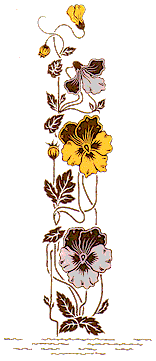
Such mean attitudes, saturated with ignorance, have to be removed by Japam and Dhyanam which fill the heart with broad and universal Atmajnana; and then the limited impulses vanish; they are transformed and transmuted into holy impulses or Vasanas. It is indeed a wonder why man fails to put forth all efforts to remove the malina Vasanas, for by following their path he gets pain, sorrow and agony! The deluding effect of these instincts and impulses makes him believe and feel that he is on the correct path towards the goal of happiness. That is why he is reluctant to give them up, that explains why he is holding on to them so fast. If he reads some good Adhyatmic books, the brain could be brightened. One could at least grasp the essence of the Sastras, for the number of Sastras is countless; time is too short to study all of them, and the obstacles in the path of understanding them are also too many. Of what use is it to pore over silly books or jawbreaking Sastras, or learn about modes of devotion that are not put into action? It is all wasteful effort. Spending all the time in study, apart from practice, also deserves to be condemned as a malina Vasana.
Listen! Bharadwaja studied the Vedas for three successive lives. When born a fourth time, he started reading again! So Indra came to him and taught him the Brahmavidya and confided to him the secret of Liberation. Then Bharadwaja put an end to his reading and his study and entered upon hard, concentrated Dhyanam. He realised the Atma. Therefore, study is a purposeless exercise if the essence is not imbibed and practised. The greed to read about all kinds of subjects and topics is itself not a very healthy impulse. Once upon a time, Durvasa, the saint, reached the presence of Siva with a cartload of religious books. Narada then compared him to the proverbial donkey; for too much attachment to books is itself a Durvasana, or undesirable habit. "Though one carries the burden of a multitude of books concerning all branches or knowledge; and though he might have read all of them, the teaching contained in them cannot be grasped at all without actual practical experience. Mere pride in learning is itself a malina Vasana, the Vasana of greed." When Durvasa heard such words of advice he was enlightened; he immediately threw all bundles into the sea and plunged into deep meditation, or Dhyanam. See how the sages feel that Dhyanam is all important for attaining full knowledge!
It is impossible to know the truth of the Atma either through the study of manifold Sastras, or by the acquisition of scholarship, or by the sharpening of the intellect, or by the pursuit of dialectical discussion. It cannot be realised by these means. Svethakethu, the son of Uddalaka, was a great pundit. One day the father called the son towards him and asked, "Svethakethu, have you understood the Sastra by understanding which all Sastras can be understood?" The son replied that he did not know of such a Sastra and had not learnt it. Then Uddalaka taught him the unequalled Sastra of Brahma Vidya, which grants one the knowledge of the truth of the Atma.
Hence, man should first grasp clearly the habits and mannerisms of his
mind and its tendencies and attitudes. Then only can he control it and
gain mastery over it and purify and develop his Memory, Will and Imagination.
![]()